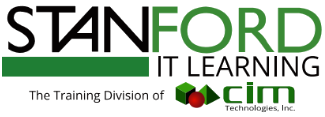
Civil engineering is a professional discipline that is heavily involves in deliberation, design, construction, supervision and maintenance of building structures and facilities such as roads, bridges, dams, highways, airports, pipelines, sewage and drainage systems, railways, ports and all the rest.
Structural engineering is a highly specialized area of civil engineering. Its function involves analysis and design of structures such as buildings, bridges, towers, marine structures, dams, tunnels, retaining walls and other infrastructure. With structural engineering, it determines if the said structures are safe, serviceable, durable, visually pleasing and economical.
Recommended Courses to take:
Autodesk Robot Structural Analysis
As one of the first Autodesk Authorized Academic Partners in the country, STANFORD IT LEARNING – The Training Division of CIM Technologies, now provides one-stop service and support for Higher Educational Institutions through ACADEME – INDUSTRY LINKAGE.
INCLUSION OF THE PROGRAM:
- Installation of Academic License Software for Civil / Structural Engineering
- Faculty Training
- Internationally recognized Certification Exam for Faculty
- Technical Workshop or Seminar for Students
- Technical Support
- Access to on-line training
Through this partnership, it will empower your Faculty to help students develop their power to be innovative. This helps prepare students for a successful career using an industry-based design software.
Benefits to Students
- Learn new skills and gain practical experience before they graduate.
- Get access to the latest software, services and resources particularly on tutorials and learning.
- Be a part of a highly-linked community that gives access to job postings, attend events and workshops.
- Certification – helps students advance their design careers whether they still attend college, enter the workforce or work toward additional levels of industry certification after graduation.
- Seminars and Workshops.
Benefits to Teachers
- Provide latest tools / resources for teaching
- Increase value as an instructor to be more skilled
- Gain competitive advantage over the other schools
- Acquire new techniques to help advance your course and for professional development
- Support students’ course projects and activities in the campus that help them
Benefits to Schools
- Improve competency of the students/graduates
- Industry Alignment of curriculum
- Making your students readier to face industry challenges with the right skills
- Industry Recognition - Provides more value to the students when it comes to the latest inComputer Aided Technology and Industry Standards; School creates more job opportunity for the students!
